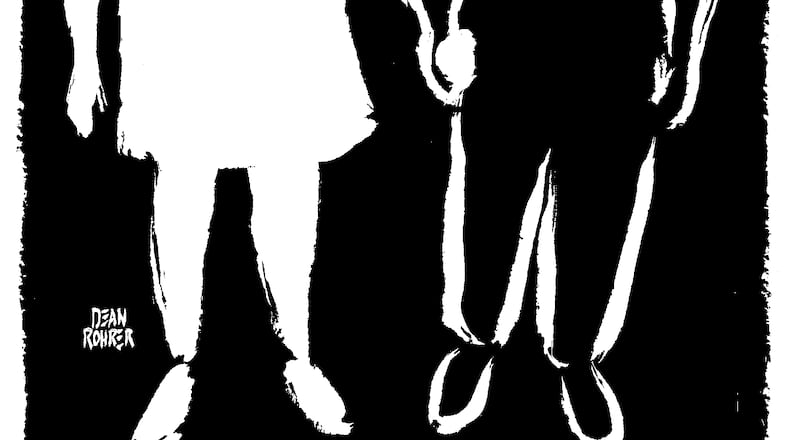At a weekend seminar a few months ago and a state Senate hearing a few weeks ago, experts presented disturbing data about school discipline and the inequities in how it is applied in Georgia and around the nation.
Among the information presented at a recent three-hour hearing held by Sen. Emanuel Jones, D-Ellenwood on the disparity in school discipline:
•We are expelling kids as young as 13.
•Studies find 65 to 70 percent of expulsions are for non-violent offenses.
•African-American students are three times more likely to receive an out-of-school suspension than other kids.
Credit: Maureen Downey
Credit: Maureen Downey
Indeed, an AJC analysis earlier this year found that while black students made up 37 percent of the nearly 1.7 million students enrolled in Georgia for the 2012-13 school year, they accounted for 57 percent of students expelled and 67 percent of students handed out-of-school suspensions.
White students made up 43 percent of students enrolled, 31 percent of students expelled and 21 percent of students suspended.
As the AJC reported:
"In communities across Georgia, black kids are suspended (and expelled) more," said Marlyn Tillman, a co-founder of Gwinnett STOPP, a metro Atlanta group that advocates for student civil rights. "And it's for the same kind of behavior (as white students)."
The persistent problem among U.S. schools was highlighted in a set of recently released guidelines by the U.S. Department of Education calling for education officials to drop overly harsh disciplinary policies and incorporate fairness and equity in doling out discipline.
So-called "zero-tolerance" policies that call on police and criminal authorities to deal with student disciplinary issues are often to blame, according to federal officials. Routine and minor disciplinary infractions should be handled by school officials, not the police, federal officials say.
But, as is often the case, the testimony in the hearing rooms conflicts with what's being said in the classrooms.
Increasingly, teachers contend they are left on their own to cope with chronic discipline problems, that administrators lack the time or the patience to deal with disruptive kids. Administrators are aware of the new attention to suspension numbers and are pushing back when teachers try to get troublemakers out of their classrooms.
And while the offenses may not count as "violent," classroom stability suffers when a 7th grader tells a teacher to "F*** off."
I have been surprised at the number of middle and high school students who complain their learning is being undermined by classmates who disrupt the class and disrespect the teacher. And they report little is done to the offenders.
So, which is it?
Are we suspending too often as detailed at the Senate committee hearing?
Or, are legislators living in a dream world where teachers have the time to put complex responses into play to respond to disruptive students? Teachers tell me they know about restorative justice and other alternatives to booting problem kids from their classrooms, but don't have the time with rosters of 33 students and demands for higher achievement.
About the Author





